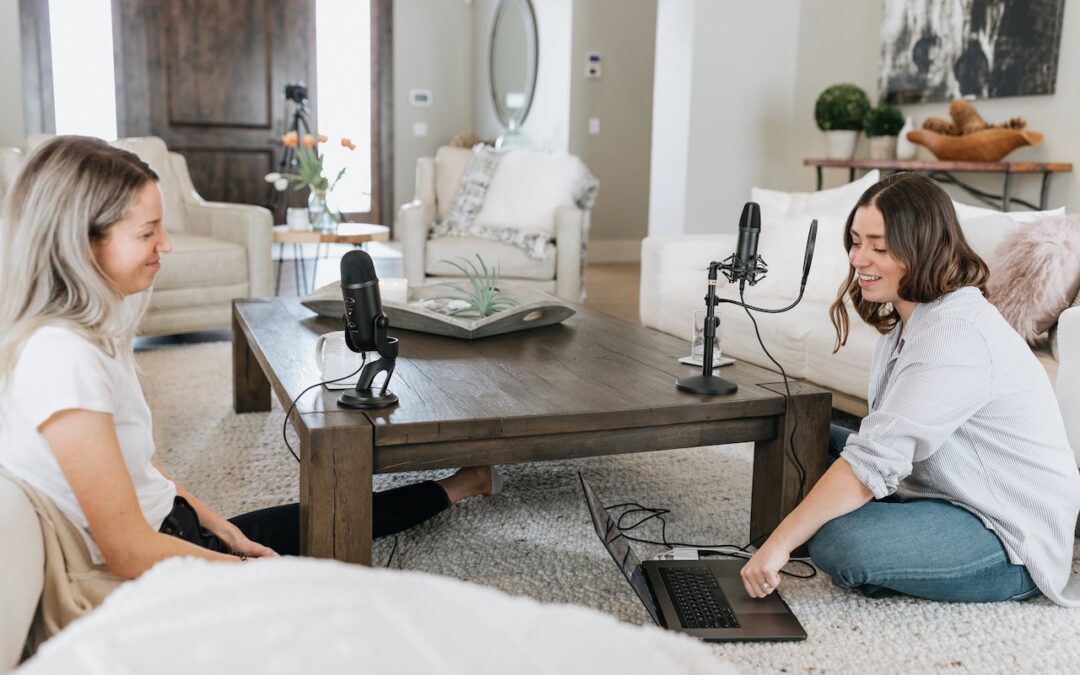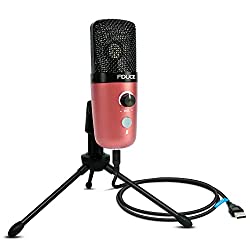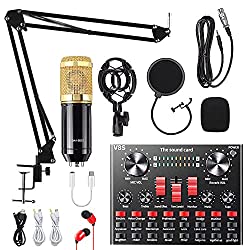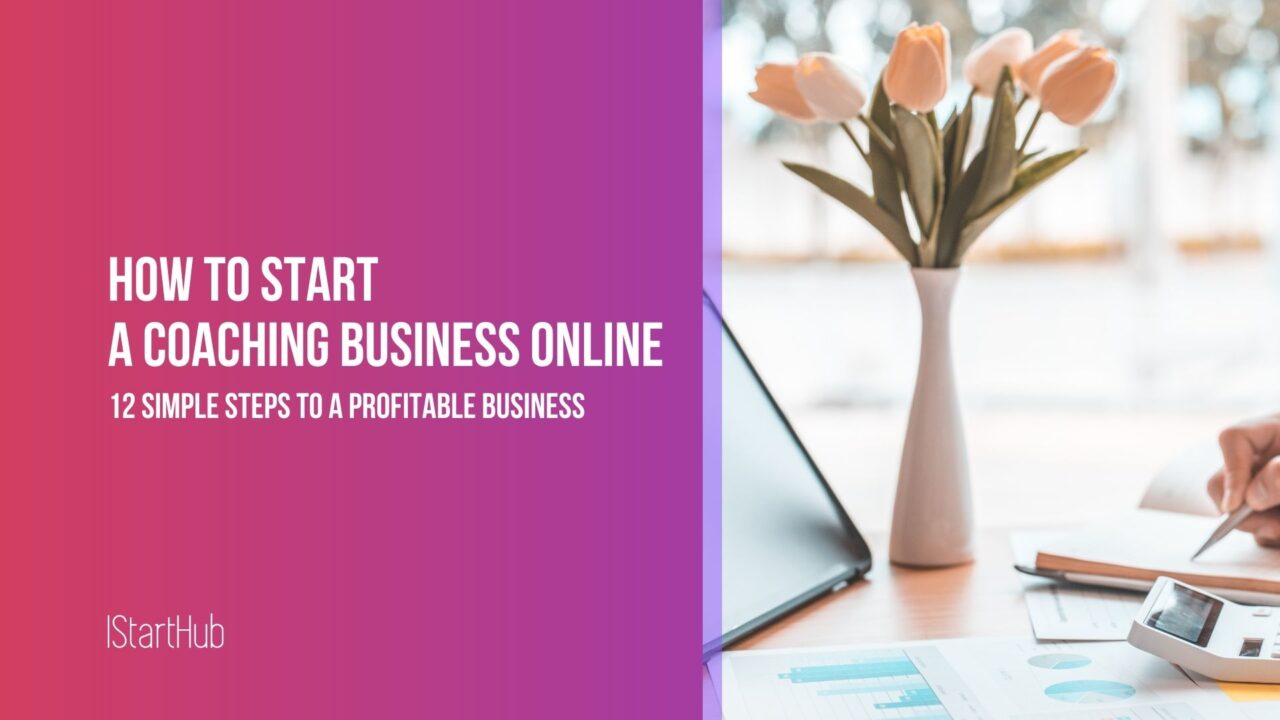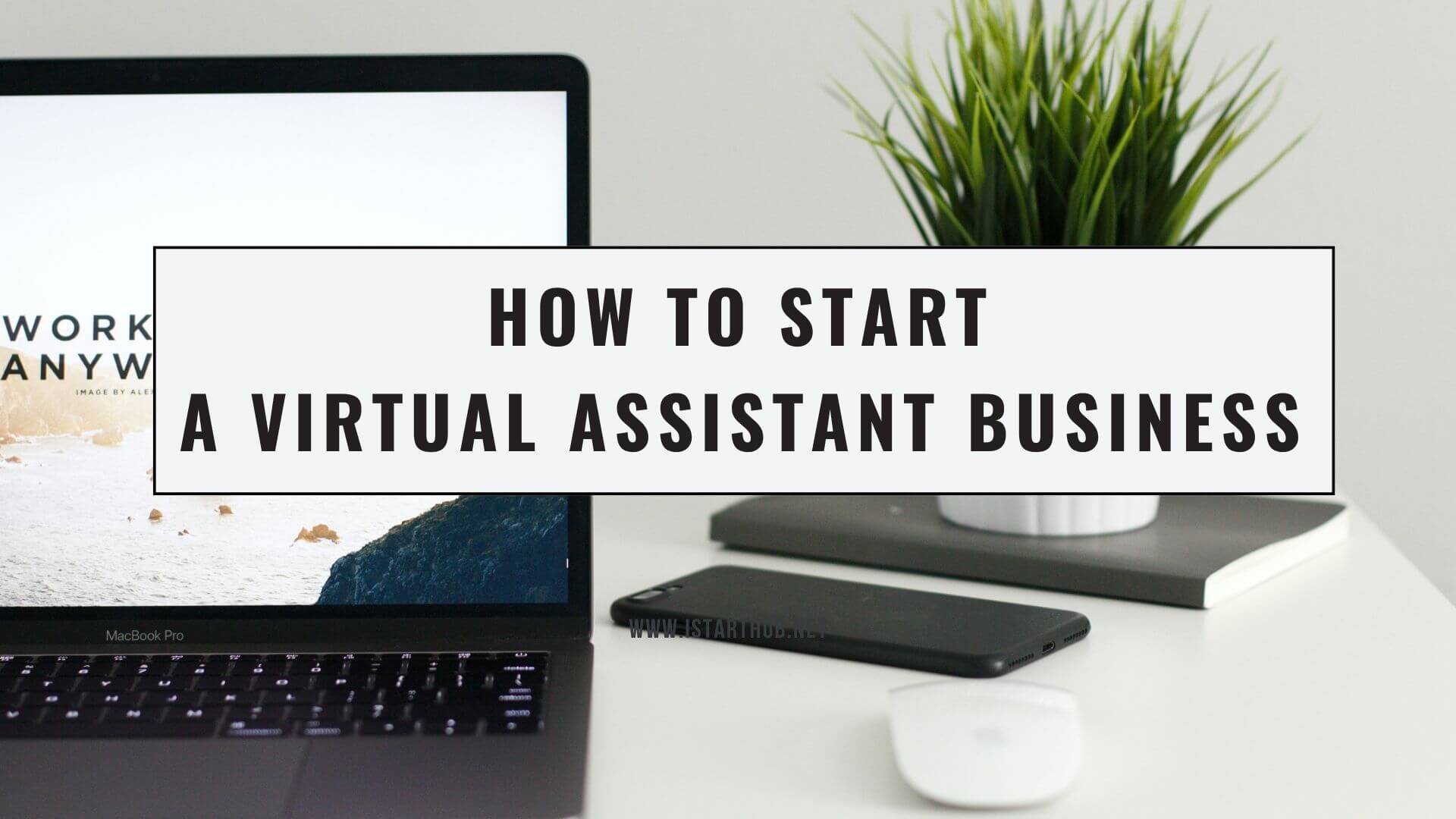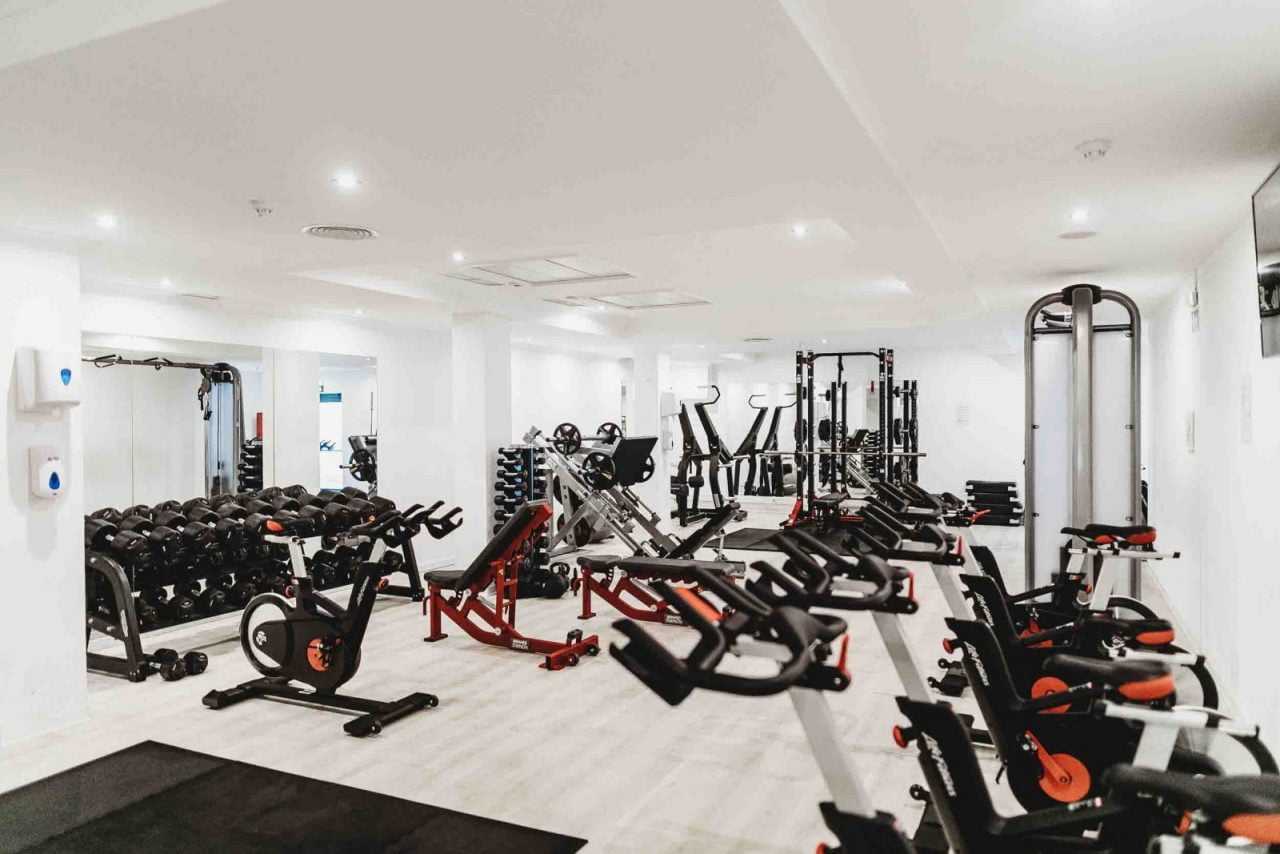A podcast is an audio or video discussion on a particular topic such as travel, business, or music that can be listened to. They’re accessible in the same file format so that the audience can enjoy the same way each time. Podcasts are often found on YouTube, Spotify, and iTunes. However, they are also available on websites. If you are looking forward to starting your podcast, I will guide you through the entire process for a better understanding, and hopefully, I will be able to motivate you to do it right away. Let’s dive deeper into the topic of how to start a podcast in 2023.
[lwptoc title=”Table of Contents”]Why Start a Podcast?
Firstly, ask yourself a question. Why do you want to make a podcast?
What value you are offering to your audience? You might want to start a podcast to create brand awareness, entertain through content, build authority, or from a hobbyist perspective. Depending on your purpose of creating a podcast, you might choose something you’re zealous about.
Once you figure out an answer to this question, it will be easier to stay motivated. It’s important to keep in mind your inspiration, which will help you in a difficult time.
Your next step is to ask “who”?
How to Start a Podcast – A Step-By-Step Guide
Podcasts have been extremely popular and their listenership is continuously growing. The popularity of the podcasts can be traced to the diversity of the content offered. If you have an idea for a podcast- it’s super easy. You just need resources, support, and most importantly advice and guidance on how to locate resources and get started.
Here are the steps that will guide you to do exactly what is needed without any alienating jargon.
1) Define Your Niche
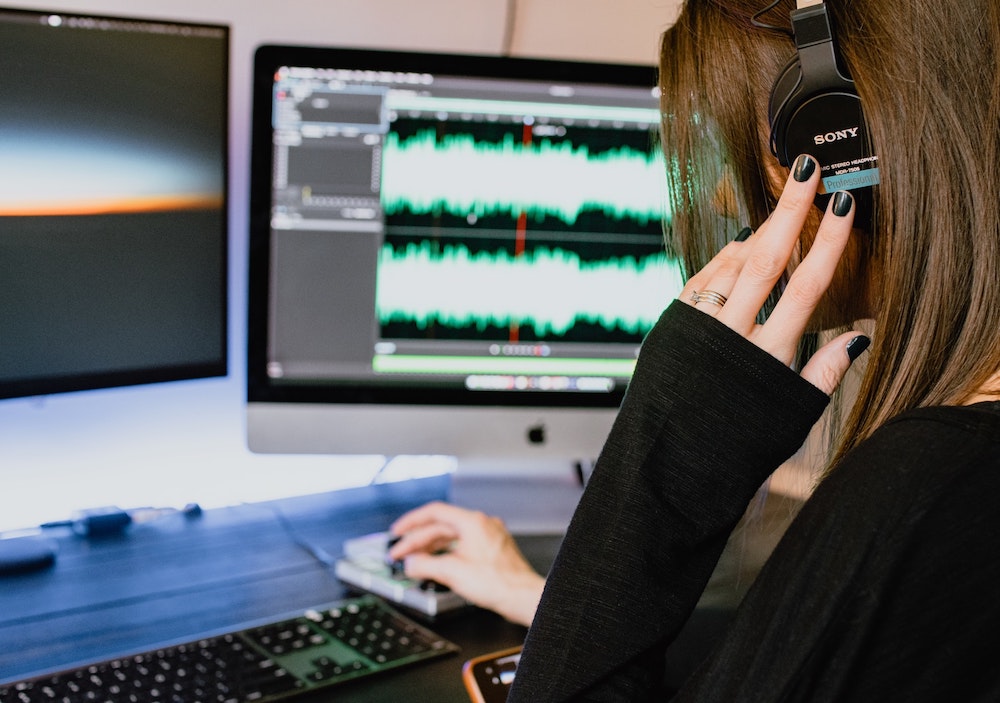
Image Credit: Unsplash
The question “Who are you making the podcast for?” will land you on the right track in deciding your topic, format, and how you will carry it forward.
For example, if you are a personal trainer and want to start a podcast about health and fitness, then your target audience would be people who want to either lose weight or are interested in bodybuilding and exercise.
If you’re creating your podcast around a hobby – let’s say based on your passion for tutoring – then your target audience would be someone interested in learning new language skills, and knowing about different learning tips.
You might find relevant podcasts to get a better idea of your niche.
Always remember that your content must give people a reason to listen to your podcast.
Meanwhile, the most frequently asked question about the podcast is “Do I need an Audience to start a podcast?”
2) Get prepared: What will you need to create a podcast?
Besides technical things, which we will discuss in a while, there are more important things to list down. Here are some of the essential things needed for a podcast;
- Cover art on Apple Podcasts check what attracts your eyes, and design your cover art model after that. You can also hire a designer or use online platforms to design clear, attractive, and beautiful art pieces. I would suggest using Upwork or Fiver to find a graphic designer for your podcast.
- Podcast name – The podcast name must be a reflection of your work and speak to the listeners. A hookup name or a short descriptive name will help in the optimization of your podcast and increase search on platforms such as Google Play.
- Category /subcategory – There are dozens of categories and subcategories of podcasts – Find a relevant and best theme that suits your podcast. However, if you are struggling with a category, you can also check out other’s work and get an idea of categories and subcategories. It isn’t supposed to be the exact topic.
- Podcast description – Include as many relevant keywords as possible in the description keeping it attractive. People will find through a simple search if you have considered SEO for your podcast description.
- Co-hosts and collaborators – Including co-hosts and collaborators will also help in the popularity of the podcast episodes. Also, include prominent collaborators to turn your new listeners into long-term fans.
3) Equipment needed for a podcast
Choosing podcast equipment can be very challenging if you are not well-versed with audio equipment, and get confused by what people tell you. It depends on the type of podcast you are creating such as a single-host traditional podcast, storytelling podcast, reporting podcast, multiple co-hosts podcast, or educational webinar podcast. Slightly different equipment is used based on the type of podcasts, however, some of the basic equipment remains the same for all kinds of podcasts. Here are some podcast set ideas:
- A laptop
- Microphone
- Pop filter
- Mic stand
- Shock Mount
- Headphones
- Headphones amplifier
- Audio Interface
- Mixer
- Cables
- Digital Audio recorder
- Memory storage device
- Soundproofing Materials
- Podcast recording software
- Podcast Audio Editing Software
Best podcast equipment (Amazon highest rated podcasting equipment)
1. MAONO Podcasting kit
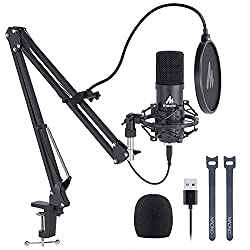
2. TKGOU Podcasting set
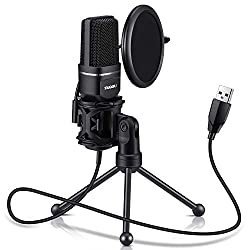
3. SUDOTACK Professional Podcasting Studio
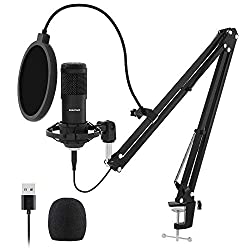
4. Aokeo streaming Podcasting Set
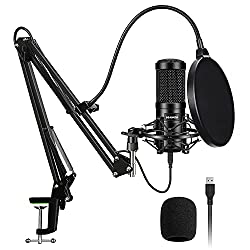
5. USB Plug&Play Computer Microphone
6. ALPOWL Podcaster Bundle
4) Best podcasting software
Here are a few of the best podcasting software you can use for your podcast;
1. Zencastr
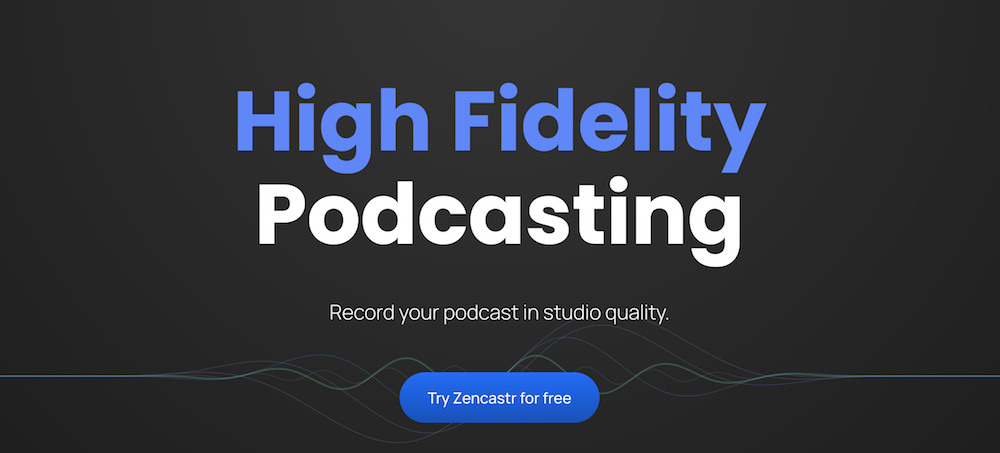
Zencastr is a web-based solution for high-quality podcast production. It is very reliable, and you can record from anywhere without installing anything. Also, you can invite your guests through a link.
Key features
- It is simple and reliable to use
- It has a secure cloud Backup
- Automatic postproduction to mix your track into audio &video mix
- Soundboard allows you to insert any audio clips live
- Built-in VoIP chat and Footnotes
- HD Video Recording
- Records lossless 16-bit 48k WAV audio track per guest
Pricing
If you are starting as a Hobby, you can start with the free trial which offers Host plus four guests’ unlimited audio recordings, High-quality MP3
However, for professionals, it’s $20 monthly, and can enjoy –
- Host + 5 or more guests
- Unlimited audio recordings
- Unlimited 1080p video recordings
- Record High-Quality MP3
- Record in 16-bit 48k WAV
- Audio/Video mixing (10 hours/month)
- Live editing soundboard
2. Squad cast
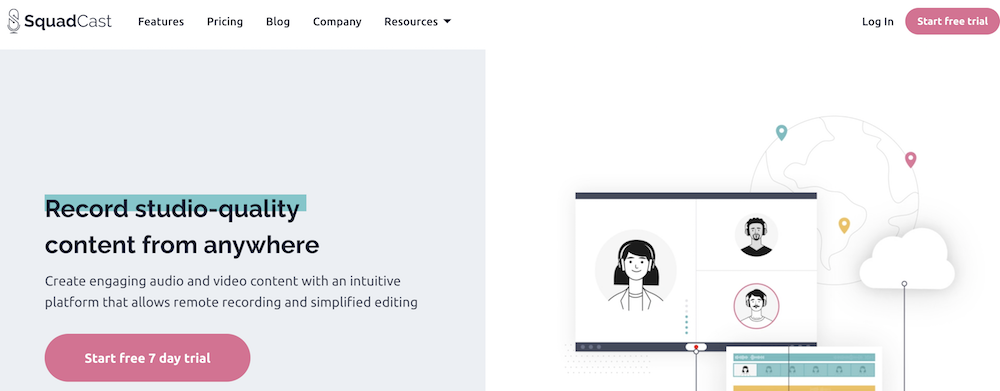
Squad Cast, Inc. is an Engineering Service Company that provides a platform for professional podcasters and aims to save time, money, and energy through one solution.
Key features
- High-quality audio and video recording
- Premium Recording ( auto-save and backups)
- Premium Recording with security
- Enhance production with separate participant tracks
- Accessible and effortless guest experience
- Guest simply use the link to join the session
Pricing
You can either choose to pay annually or monthly and also cancel any time if you want
- Indie Audio: 5 hours (Audio Recording ) and pay $20 per month
- Pro Audio: 12 hours (audio Recording ) and pay $50 per month
- Studio Audio: 25 hours ( Audio Recording) and pay $150 per month
Indie has fewer features and is used for smaller podcasts, Pro audio is for larger podcasts with multiple features, and finally studio Audio is for multiple podcasts.
3. Audacity
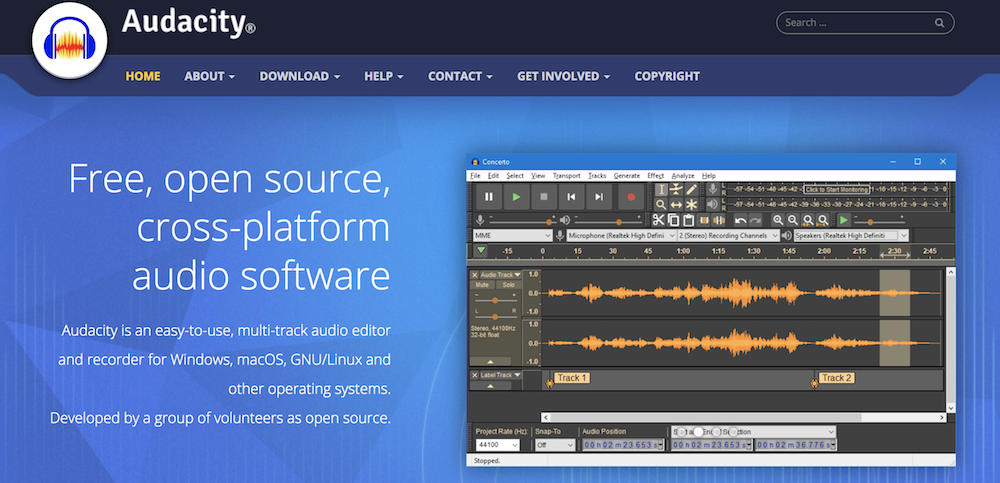
Audacity is an open-source digital audio editor and recording free application software. The software is available for Linux, Windows, macOS, and other operating systems. You can download it for free and use it for podcasting.
Key features
- Free, open-source cross-platform audio software
- Live recording with microphone, mixer, or digitized recording from media
- Import, edit, and combine sound files
- Exporting recordings with support of 16-bit, 24-bit, and 32-bit
- Support for LADSPA, LV2, Nyquist, VST, and Audio Unit Effect plugins
Pricing
Audacity is completely free software and open source. It is developed by volunteers for nonprofits and source code is available to use and study. It is distributed under GNU (General Public License).
4. Cleanfeed
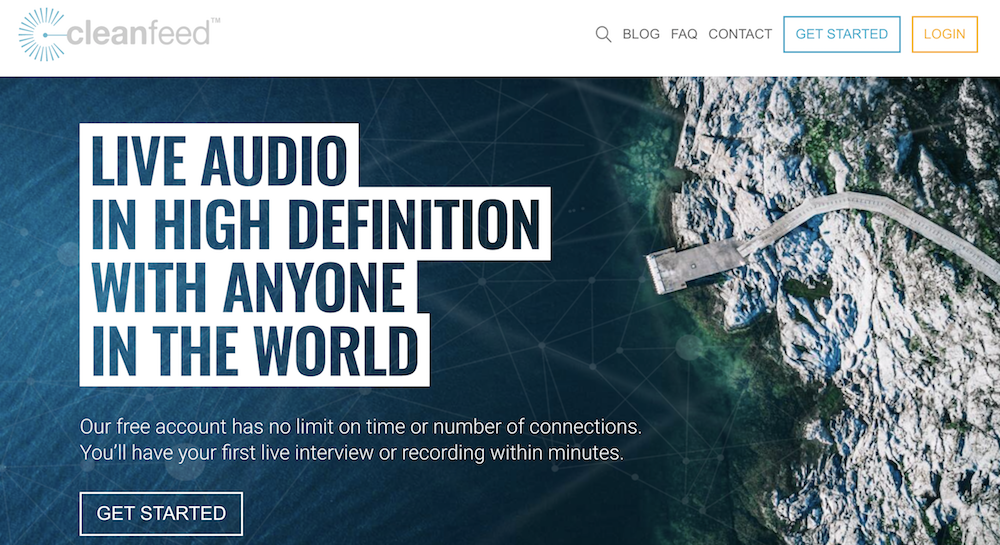
Cleanfeed is a platform where you can record life, and it’s free. It has a mix of studio output without contribution. Its free account is unlimited, however, if you want you can upgrade at any time.
Key features
- Easy to use
- High-quality recording with Crystal clear audio
- Design to use in browser
- Multiple parties
- Connect to anyone from Windows, Mac, Linux, and Android
- Built-in Recording
Pricing
You can start free, and upgrade any time for commercial use. The standard is free and has few features including multiple parties, high-quality audio, and unlimited session recording. Meanwhile, the Cleanfeed Pro is for business and has multiple features at the price of $34 per month. Also offers a discount of $22 per month. Its features include;
- Multiple track records
- Audio repair
- Channel mix control
- Higher bitrates,
- Aux outputs
- Email support
- Cart wall
- Advance invitations
- Multiple Recording
- Unlimited sessions
- And high-quality audio.
5) Promote your podcast: How to start a podcast with no audience
The vast majority of people start with zero audiences. Of all the things that might put you down, this is one reason. However, do not let it put you off launching your podcast.
Podcast Discovery Survey data suggested that potential new listeners don’t even care that you are new to podcasting. Or they have never heard of you. For them, it is the most uncommon thing to care about.
However, if you have an audience that could be from your business, brand, or anything platform. You can use the opportunity to lay the foundation and start a relevant podcast. You can also survey to get data about your audience asking questions relevant to your topic which will help you understand your audience, and create content valuable for them.
Here are some of the best ways to attract listeners to your podcast:
1. High-Quality Content
Start with well-researched, and engaging content that addresses the interests and needs of your target audience. Do not forget that a consistent and reliable posting schedule is highly important. Make your listeners wait for new episodes.
Also, try to provide value, whether it’s education, entertainment, or inspiration. Valuable content encourages word-of-mouth recommendations.
2. Eye-Catching Cover Art
Design a visually appealing podcast cover art that reflects your brand and podcast theme. It’s often the first thing potential listeners see.
3. Optimize Titles and Descriptions
Generate creative episode titles and descriptions that give potential listeners a good idea of what to expect.
4. Use Keywords
A successful podcast promotion requires using SEO keywords in your podcast title, description, and episode titles to improve discoverability on search engines and podcast directories.
5. Leverage Social Media
Promote your podcast on social media platforms where your target audience hangs out. Share teasers, behind-the-scenes content, and episode announcements.
6. Collaborate
Partner with other podcasters or influencers in your niche for cross-promotion. Guest appearances on other podcasts can help you increase reach and attract new audiences.
7. Utilize Email Marketing:
Build an email list of interested listeners and send out newsletters with updates, episode releases, and exclusive content.
8. Create a Blog
Develop a website or blog that complements your podcast. Share show notes, additional resources, and blog posts related to your episodes.
9. Encourage Listener Reviews and Ratings
Ask your listeners to leave reviews and ratings on podcast directories like Apple Podcasts. Positive reviews can boost your podcast’s visibility.
10. Attend Podcasting Events
Attend virtual or in-person podcasting events, conferences, or webinars to network with fellow podcasters and learn from industry experts.
12. Paid Advertising
Consider running paid advertising campaigns on social media or podcast advertising networks to reach a broader audience.
13. Monitor Analytics
Use podcast analytics tools to track listener demographics, episode performance, and audience growth. Adjust your strategy based on these insights.
Remember that growing a podcast audience takes time and patience. Consistency, engagement with your community, and a commitment to continuous improvement are key to attracting and retaining listeners. As your podcast gains momentum, word-of-mouth recommendations can also become a powerful driver of audience growth.
6) Monetize it: How to make money from a podcast
The podcast is now a popular source of earning money similar to YouTube. However, it’s a little bit controlling. The content must be attractive, and engaging and create value for the listener. In podcasting, sponsorships are the most common form of earning money. Besides direct support including support from fans where you simply asked them to send money to support your podcast.
Also, affiliate sales can be a good option to earn money through podcasting. Here are some ways of how podcasts make money.
- Affiliate marketing – you receive a commission on referring someone to a company when someone makes purchases with your reference. You can either create an ‘’Ad’’ or just mention the product or service.
- Sponsorships and Advertising – This must be the priority if you are a podcaster. Sponsorships and advertising can earn you a good amount of money.
- Creating courses: Most of the popular podcasters create their courses to teach their audiences new skills.
- Coaching and consulting– It is like offering services, and you don’t work for them but offer your guidance and support to improve.
- Crowdfunding and Donations – As I mentioned before you can ask your audience to support your content. Mostly entertainment-focused podcasters ask for direct donations from their fans to continue to support their work.
- Premium content– Premium content usually includes behind-the-scenes content, Q&A with the hosts, and Additional interviews, and it could be anything that you would love to do and offers additional value to your audience and community.
- Physical products– podcasters also sell products linked with their content, such as t-shirts, mugs, and other swag.
- Books – popular podcasts can sell books and it’s an excellent way to earn money.
- Public speaking– Popular podcasters are also invited as public speakers, they charge a different fee for public speaking. It’s another great way to increase your income.
There could be many other ways to earn through podcasting which you can explore, once you get into the real market. However, the above-mentioned earning types are the most common ways to earn through podcasting.
Starting a podcast FAQs
What is podcasting?
Podcasting is the audio distribution of information on the web. According to recent studies, an average person spends 5 hours a week listening to podcasts. While starting a podcast requires no special skills it can be a great marketing channel for growing a business or a personal brand.
Some of the most popular podcasting types:
- Interview podcasts (The format of the interview can be the easiest one if you are just starting your podcast journey)
- Solo show podcasts (It is a monologue format of the podcast where you share your ideas on the topics you are interested in)
- Multi-hosted podcasts (It is a type of podcast with two or more hosts)
How much does it cost to start a podcast?
The cost of starting a podcast can vary widely depending on your goals and the quality of equipment and services you choose. Here’s a breakdown of potential expenses:
1. Equipment – It starts from $100 and more
2. Recording and Editing Software – You can use free or paid software
3. Hosting. You will need website hosting and you can start with as low as $3.75 per month using Hostgator.
5. Cover Art. You can make it for free using Canva or hire a designer for $50 to $500 or more.
6. Marketing and Promotion. Budget for marketing activities, such as social media advertising, email marketing, or paid promotions. Costs vary widely based on your strategy.
How much do podcasters make?
Podcasters make from $500-$900 per episode in affiliate podcasting if your download per episode is 10,000. However, earning depends on the revenue stream and popularity of the podcasts. According to different sources, top podcasters make a huge amount of money such as Joe Rogan making $30 million annually, Dax Shepard making $9 million, and Dave Ramsey, The Dave Ramsey Show making $10 million.
According to the Atlantic Report, popular podcasters use advertisements to make $25 to $40 for every 1000 listeners.
Sarah Rhea Werner is among the biggest independent podcasters with a success story. She says,
“I make a full-time living podcasting (including paying for healthcare, if not saving for emergencies) because I include both direct and indirect podcast income.’’
What are some best podcast ideas?
The best podcast ideas revolve around passion, story, advice, inspiring interviews, and reviews. Storytelling never fails and the audience gets the content relating to their stories in life. You can review a popular movie or a book with potential conversation.
Here are some of the popular and best topics for podcasts
- Food
- Sports
- Feminism
- Paranormal
- Questions and Myths
- Education
- Music
- Behind the scenes of an industry
- Documentary review
- Deep Dives
- Mystery theme
Besides these, there can be any topic that you find interesting and passionate about and believe that can create value for listeners could be a potential niche in podcasting.
How to start a podcast on YouTube
YouTube is one of the best platforms to launch your podcast. It is very simple and does not require a huge cost. Simply, set up media hosting and podcasting, and choose equipment. The next step is to record your podcast, edit it, and make it qualitative.
YouTube users are diverse, and millions of people all over the world consume content through this platform. Reaching such a vast majority of people can attract people with the same interest and passion about similar things. This can be very beneficial for beginners, who are new to podcasting.
More of the podcasters are getting into YouTube, such as Ethan Klein, David Dobrik, Joe Rogan, and Marques Brownlee. And you can be one of them.
Can you make money from podcasts?
Yes! As you can see from the examples above people make millions of dollars with it and you also can make money with a podcast. The important thing to remember is that it can take some time. Make sure to find your niche in order to stand out and make your podcasting unique. Focus on marketing and don’t forget to motivate yourself on the journey.
A final thought on Podcasting
Well, now you know how to start a podcast with no audience. Podcasting is emerging as a new way to communicate with the audience replacing radio giving more options and diverse content. Its market is continuously growing and can be a good source of earnings providing multiple revenue streams.
If you are passionate about speaking or sharing your experience, and ideas, and looking forward to starting a podcast, do it right away. It will take a while to get an audience and turn it into a revenue source. And always stay motivated and learn from other podcasters. As Bennet (Guardian) says,
“Podcasts are additive to the relationship with the audience; people listen to podcasts when their hands and eyes are busy.’’
Tetiana is a business coach and owner of IStartHub, a business media for ambitious female entrepreneurs and small business owners.

